Why Netanyahu Bolstered Hamas
The Israeli prime minister followed a decades-old divide-and-rule strategy that fuels endless war.
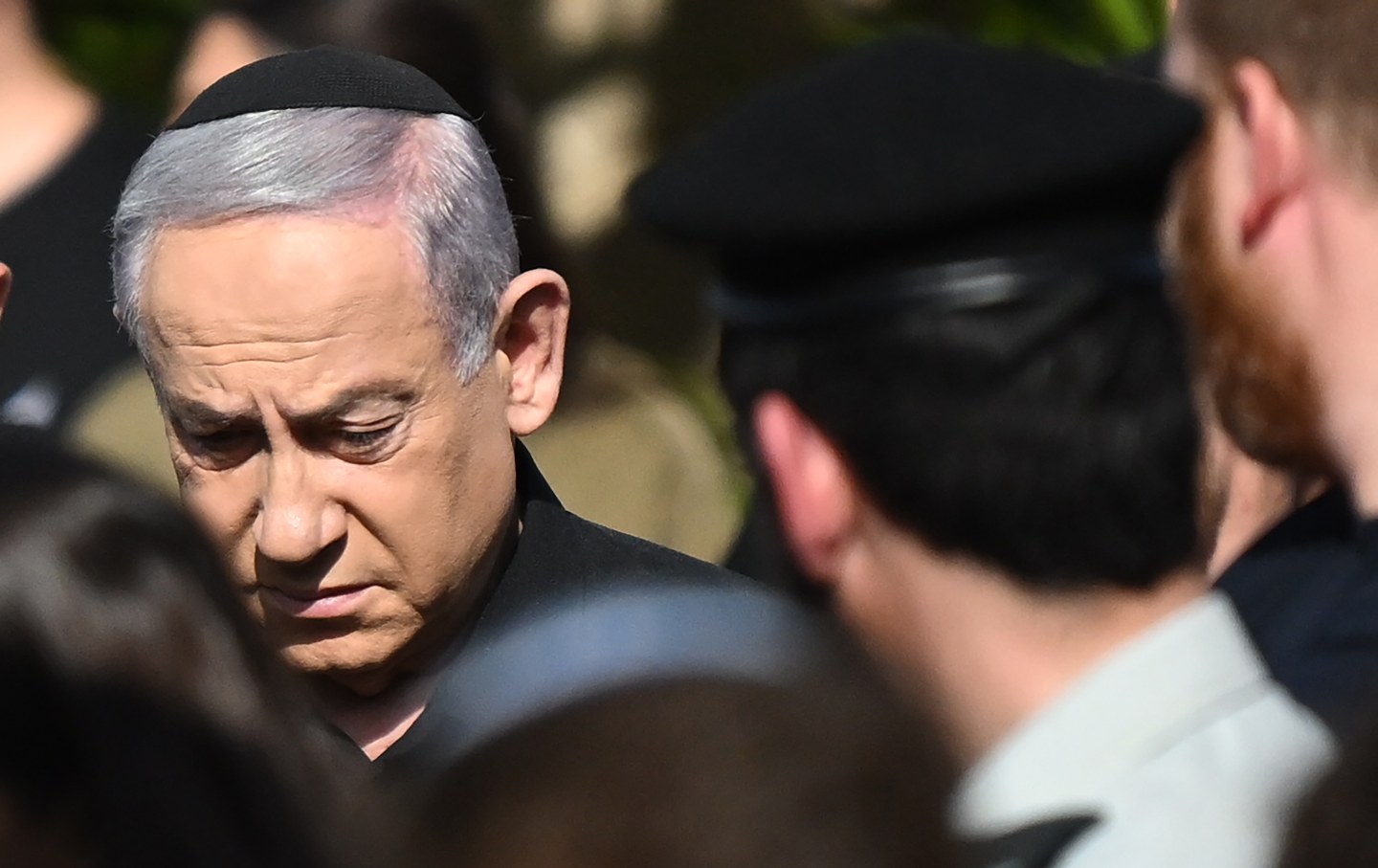
Wars help hide political scandals. The ongoing Israeli assault on Gaza has been singularly useful to prime minister Benjamin Netanyahu in sidelining popular anger at his government’s numerous failings. The massive protests against Netanyahu’s authoritarian attempts to weaken the courts dwindled after Hamas October 7 attack, although there are signs they are resuming force. The intelligence failures that allowed the October 7 attack to take place have received some press attention—but have yet to be the focus of sustained political ire.
The same is true of Netanyahu’s longstanding policy of bolstering Hamas rule in Gaza, including encouraging Israel’s de facto ally Qatar to finance the terrorist organization. While the much-respected Israeli newspaper Haaretz has covered this issue, it has been largely ignored by the international press.
On Sunday, The New York Times gave new prominence to the long-standing Netanyahu-Hamas connection in a detailed and lengthy report. According to the newspaper:
Just weeks before Hamas launched the deadly Oct. 7 attacks on Israel, the head of Mossad arrived in Doha, Qatar, for a meeting with Qatari officials.
For years, the Qatari government had been sending millions of dollars a month into the Gaza Strip—money that helped prop up the Hamas government there. Prime Minister Benjamin Netanyahu of Israel not only tolerated those payments, he had encouraged them.
According to the Times, Israeli intelligence agents traveled into Gaza with a Qatari official carrying suitcases filled with cash to disperse money. Retired Israeli general Shlomo Brom described the logic of Netanyahu’s position: “One effective way to prevent a two-state solution is to divide between the Gaza Strip and the West Bank.” If the extremist Hamas ruled Gaza, then the Palestinian Authority—a compromised comprador government with a tenuous hold on the West Bank—would be further weakened. This, according to Brom, would allow Netanyahu to say, “I have no partner.”
In 2015, Bezalel Smotrich, currently the finance minister in Netanyahu’s government, summed up the strategy by stating, “The Palestinian Authority is a burden. Hamas is an asset.”
According to the Times, “As far back as December 2012, Mr. Netanyahu told the prominent Israeli journalist Dan Margalit that it was important to keep Hamas strong, as a counterweight to the Palestinian Authority in the West Bank. Mr. Margalit, in an interview, said that Mr. Netanyahu told him that having two strong rivals, including Hamas, would lessen pressure on him to negotiate toward a Palestinian state.” Netanyahu denies this conversation.
Although informative, the Times article suffers from the historical amnesia and political myopia of the newspaper’s coverage of the conflict. The funding of Hamas is presented as merely a problem for Israel—as if the divide-and-rule strategy didn’t have dire consequences for Palestinians. The main political critic of the policy quoted is the far-right politician Avigdor Lieberman, a former Netanyahu ally who advocated a war to destroy Hamas. To judge by the Times, the acceptable spectrum of political policy runs from Lieberman to Netanyahu. The article presents the policy as the fault of Netanyahu alone and ignores the ample historical record that the current prime minister was following a cynical strategy that is decades old.
In his 2006 study The Iron Cage, historian Rashid Khalidi described Hamas as “the protégés of the Israeli occupation” and part of a divide-and-rule strategy shared by Israel and its superpower patron, the United States. According to Khalidi, the British empire provided a model for
the decades-long U.S. fostering of the Muslim Brotherhood and the Islamically oriented groups throughout the Middle East as counterweights to what were perceived as radical, nationalist, anti-American forces. Conservative Arab regimes allied with the United States, like those of Jordan and Saudi Arabia, followed a similar policy. For well over two decades after the occupation of the West Bank and Gaza in 1967, Israel did much the same thing with the Palestinian branch of the Muslim Brotherhood and its offshoot Hamas in Gaza as a counterweight to the nationalist Palestinian Liberation Organization (PLO). This reached the point where the Israeli military occupation encouraged Brotherhood thugs to intimidate PLO supporters.
A 2006 article from United Press International reporter Richard Sale noted, “Israel and Hamas may currently be locked in deadly combat, but, according to several current and former U.S. intelligence officials, beginning in the late 1970s, Tel Aviv gave direct and indirect financial aid to Hamas over a period of years.” The article quoted a former CIA official as saying Israel financed Hamas, as “a direct attempt to divide and dilute support for a strong, secular PLO by using a competing religious alternative.”
Netanyahu deserves no credit for political innovation. Not only is the policy of supporting Hamas decades old; it has roots in the tactics of imperial domination developed by the British Empire (and later taken up by the United States). There’s a direct line of continuity leading from imperial regimes’ fostering of conservative governments and religiously zealous factions to the current Israel/Qatar/Hamas connection.
Nor is this policy the only relic of the past in this conflict. The very methods Israel is using to fight this war—bombings where civilians are a far larger percentage of the killed than combatants—is also a tactic dating back to the Fascist terror bombing of Guernica during the Spanish Civil War and the mass bombings by both sides during World War II. It, too, will bolster Hamas even more. As University of Chicago political scientist Robert A. Pape noted in Foreign Affairs:
Mass civilian punishment has not convinced Gaza’s residents to stop supporting Hamas. To the contrary, it has only heightened resentment among Palestinians. Nor has the campaign succeeded in dismantling the group ostensibly being targeted. Fifty-plus days of war show that while Israel can demolish Gaza, it cannot destroy Hamas. In fact, the group may be stronger now than it was before.
Writing in The Nation, Tony Karon and Daniel Levy make the parallel point that because insurgent wars are won politically, Israel’s brutal policy of collective punishment is leading to victory by Hamas.
Given this history, it’s clear that Netanyahu and Hamas are both merely symptoms of a deeper problem. The real source of endless war is the Israeli state’s long-standing goal of imperial domination over the Palestinians, toward which end the propping up of Hamas is merely a means. The only way to solve this problem is to realize that the goal of domination is itself unsustainable. Forswearing that goal, Israel and its allies, including the United States, should instead be fostering Palestinian political unity as a necessary predicate for a two-state solution.
We cannot back down
We now confront a second Trump presidency.
There’s not a moment to lose. We must harness our fears, our grief, and yes, our anger, to resist the dangerous policies Donald Trump will unleash on our country. We rededicate ourselves to our role as journalists and writers of principle and conscience.
Today, we also steel ourselves for the fight ahead. It will demand a fearless spirit, an informed mind, wise analysis, and humane resistance. We face the enactment of Project 2025, a far-right supreme court, political authoritarianism, increasing inequality and record homelessness, a looming climate crisis, and conflicts abroad. The Nation will expose and propose, nurture investigative reporting, and stand together as a community to keep hope and possibility alive. The Nation’s work will continue—as it has in good and not-so-good times—to develop alternative ideas and visions, to deepen our mission of truth-telling and deep reporting, and to further solidarity in a nation divided.
Armed with a remarkable 160 years of bold, independent journalism, our mandate today remains the same as when abolitionists first founded The Nation—to uphold the principles of democracy and freedom, serve as a beacon through the darkest days of resistance, and to envision and struggle for a brighter future.
The day is dark, the forces arrayed are tenacious, but as the late Nation editorial board member Toni Morrison wrote “No! This is precisely the time when artists go to work. There is no time for despair, no place for self-pity, no need for silence, no room for fear. We speak, we write, we do language. That is how civilizations heal.”
I urge you to stand with The Nation and donate today.
Onwards,
Katrina vanden Heuvel
Editorial Director and Publisher, The Nation
More from
Jeet Heer 
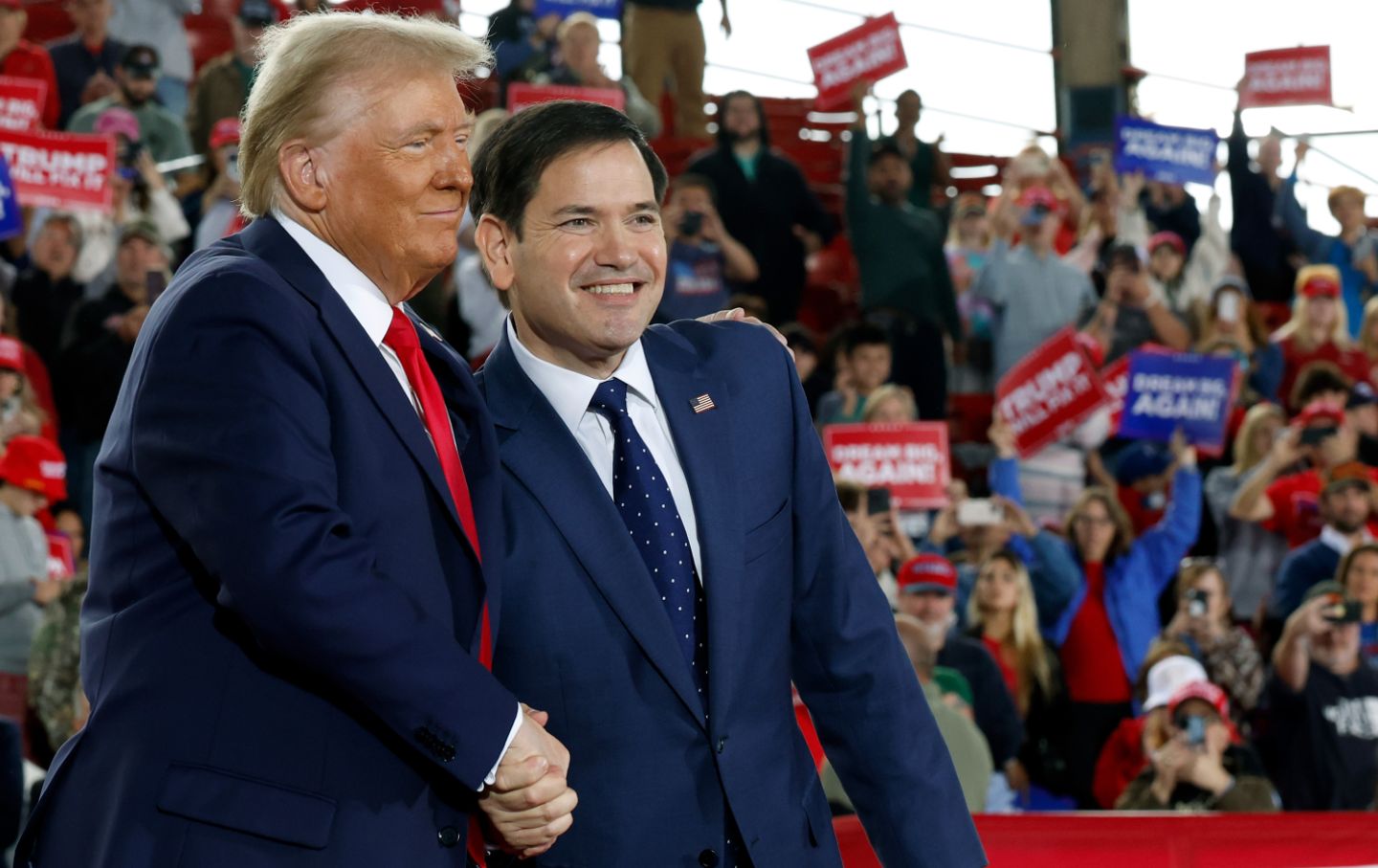
Donald Trump’s Foreign Policy Will Be Chaos First, Not America First Donald Trump’s Foreign Policy Will Be Chaos First, Not America First
His team of cronies includes establishment hawks and cranky outsiders who are more likely to deliver global anarchy than world peace.
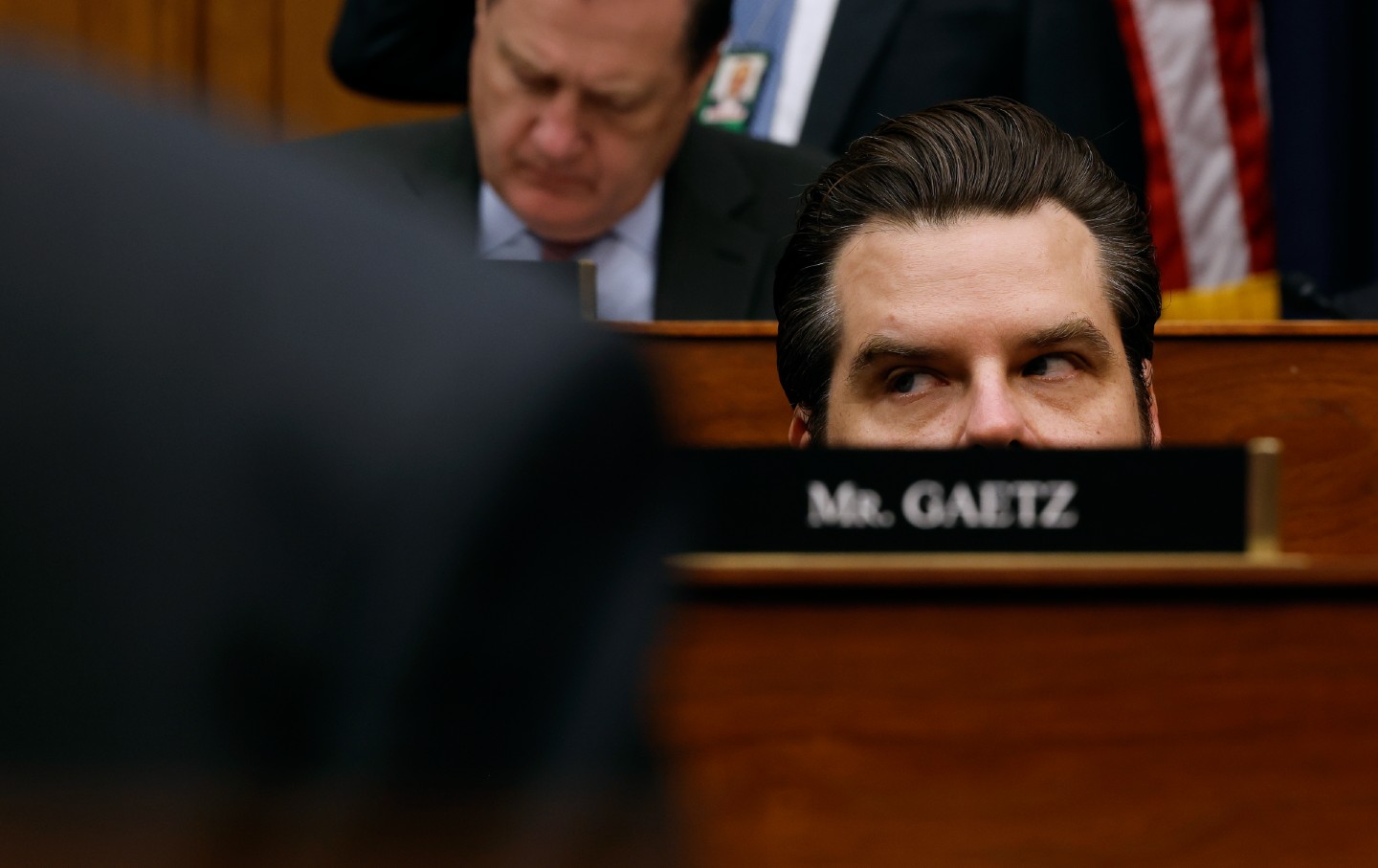
Donald Trump Is Waging a Shock-and-Awe War Against His Own Senate Donald Trump Is Waging a Shock-and-Awe War Against His Own Senate
By nominating Matt Gaetz and other dangerous cronies, the president-elect is testing congressional servility.
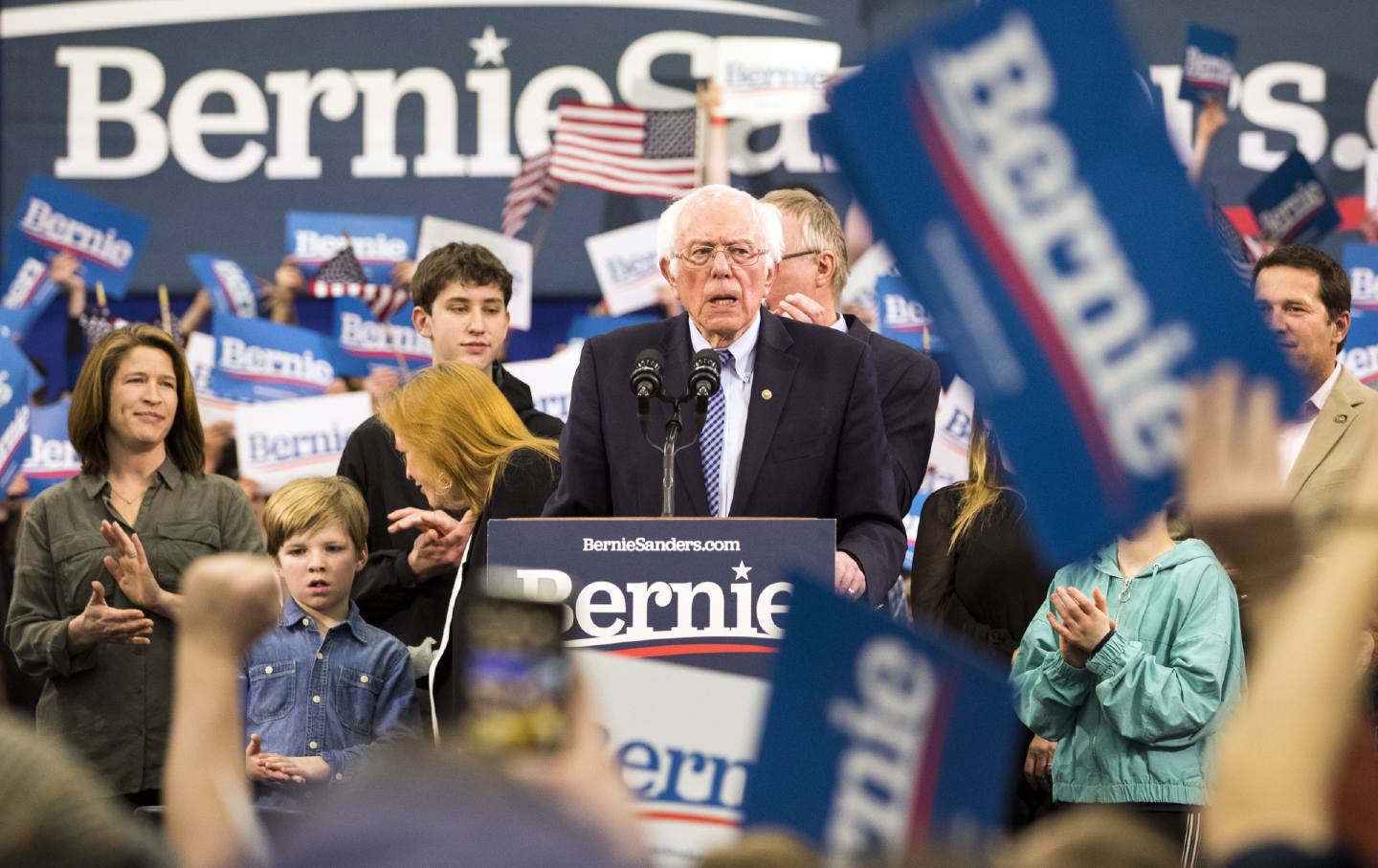
Bernie Sanders Is Right: Democrats Have Abandoned the Working Class Bernie Sanders Is Right: Democrats Have Abandoned the Working Class
The party chased former Republicans and rich donors, while alienating the working-class majority.
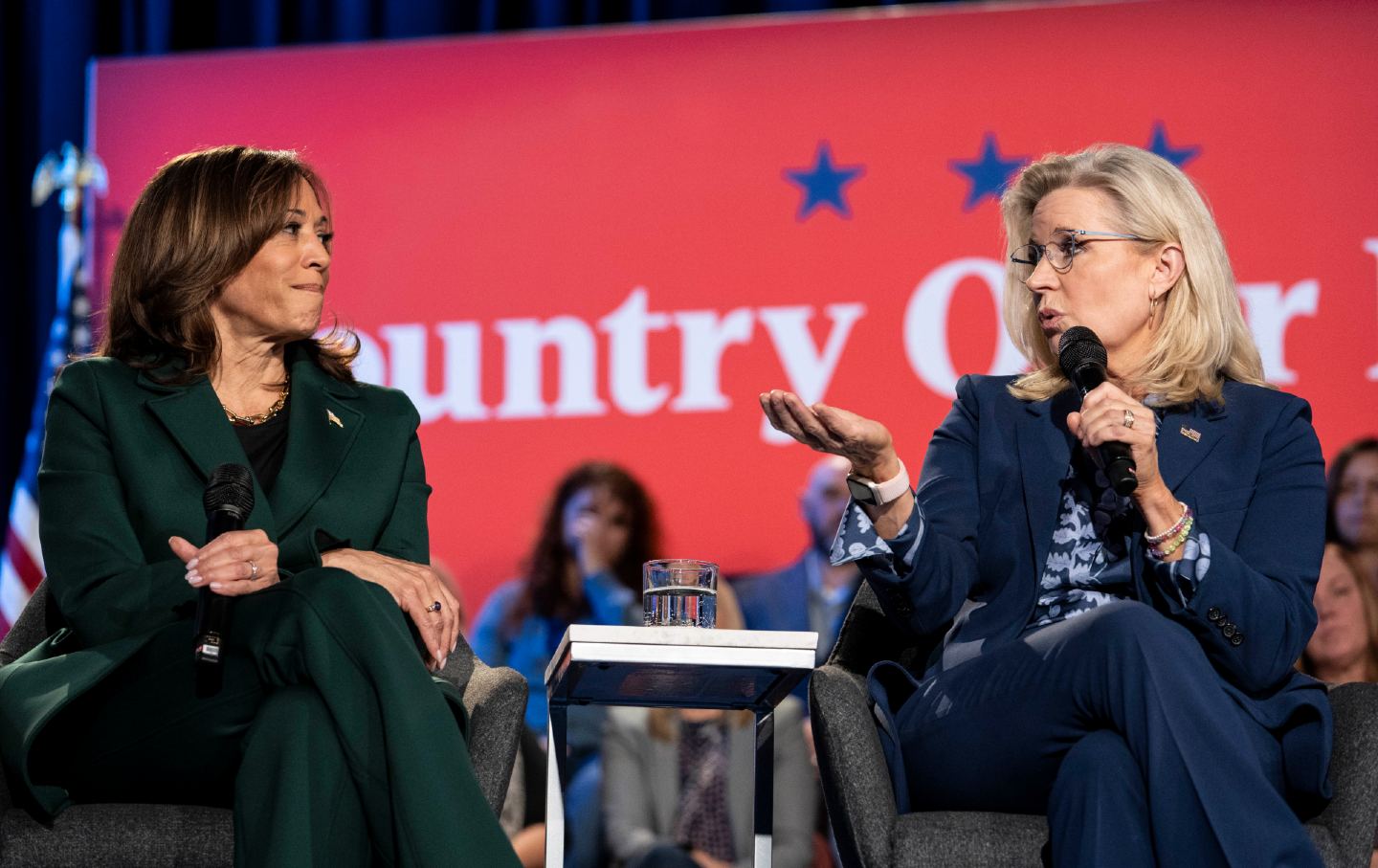
This Time We Have to Hold the Democratic Party Elite Responsible for This Catastrophe This Time We Have to Hold the Democratic Party Elite Responsible for This Catastrophe
Trump won because the opposition party is committed to ancien régime restoration in a country that desperately wants change.
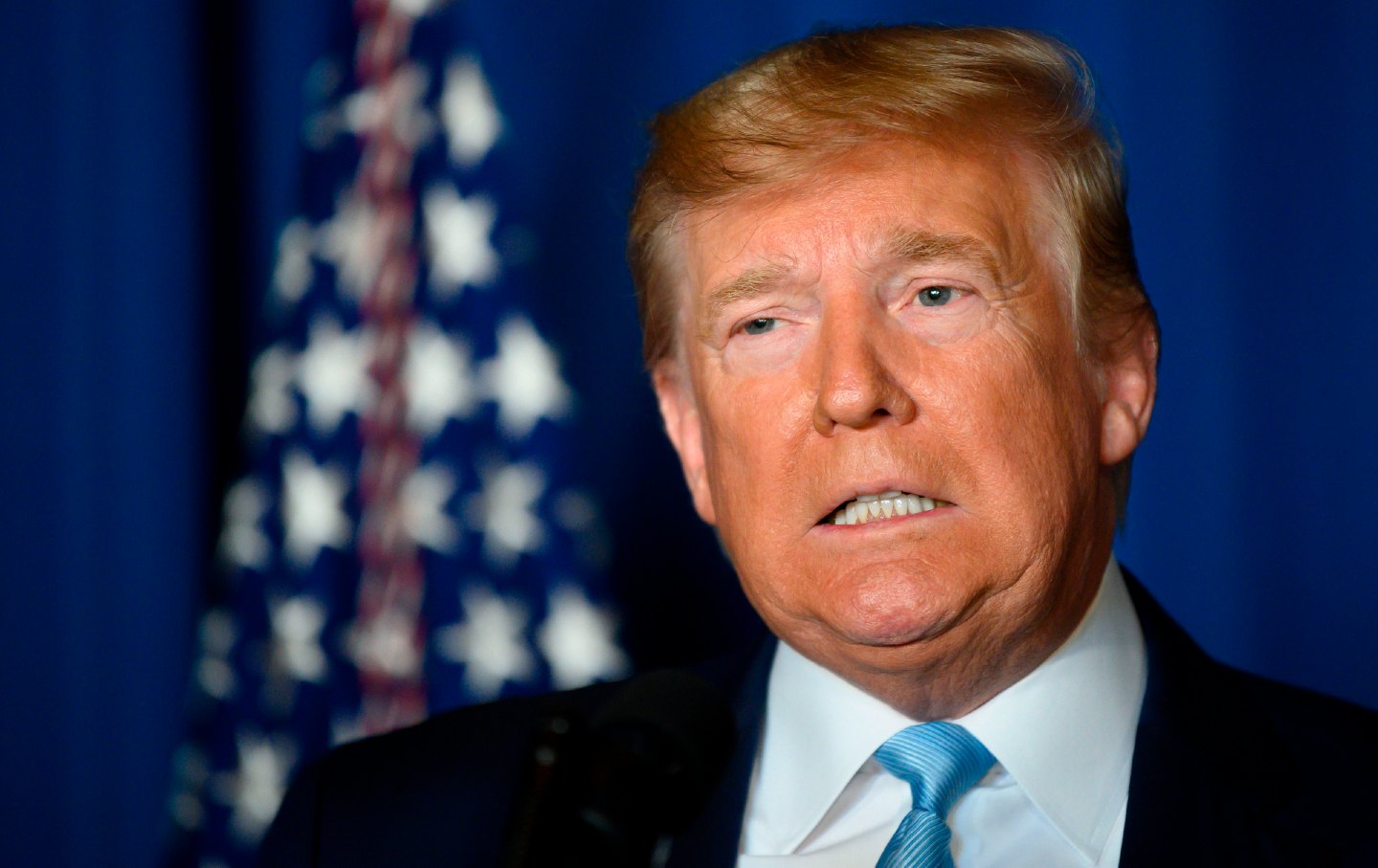
Trump’s Anti-War Charade Deserves a Challenge Trump’s Anti-War Charade Deserves a Challenge
It’s a grave mistake for Democrats to let Trump be the only voice expressing revulsion at militarism.
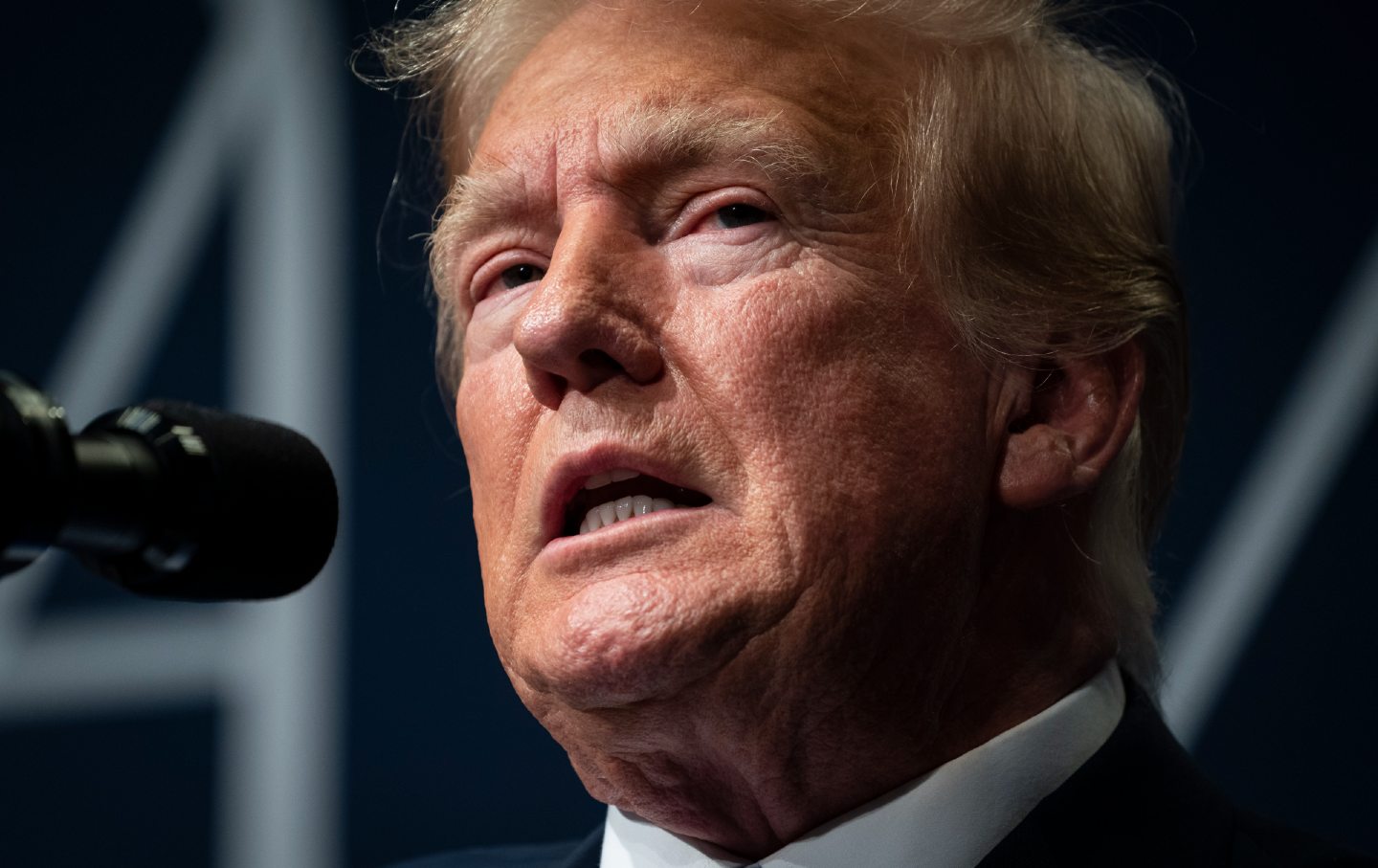
Donald Trump Makes American Women an Offer They Can’t Refuse Donald Trump Makes American Women an Offer They Can’t Refuse
The former president wants to turn gender relations into a protection racket.


